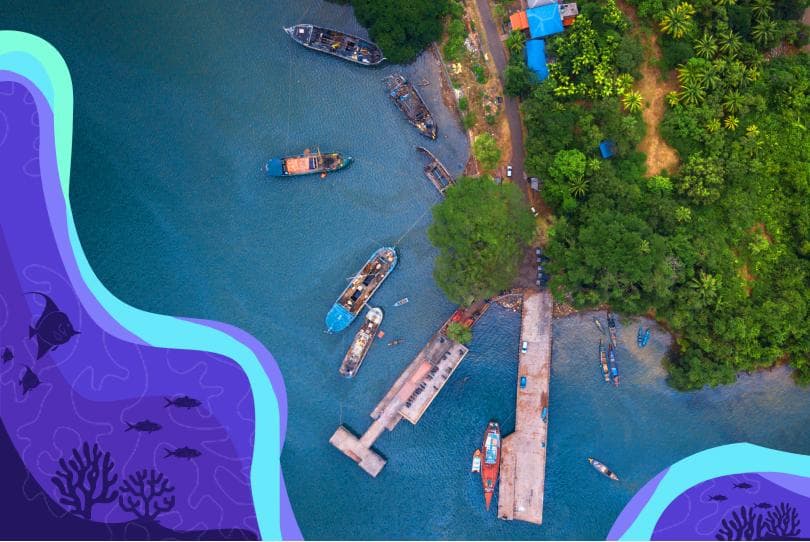Will India Lead the Blue Economy Revolution?
Discovering the immense potential of India's coastline and its role in the blue economy.

The tranquil expanse of the ocean, in all its vastness, has been my muse. Memories of a younger me, captivated by Jacques Cousteau's marine documentaries, play like a cherished film reel in my mind. That enchantment gave birth to a purpose: to champion ocean conservation. Yet, can one entity or nation truly ignite change? Amidst these reflections, my thoughts drift to India and its pivotal role in the emerging Blue Economy narrative.
Understanding the Blue Economy
For many, the Blue Economy might seem like yet another jargon. However, at its heart, it is a call to protect our oceans - the guardians of our climate and biodiversity. Just as the Green Economy battles deforestation, the Blue Economy fights for our oceans. It's worth noting that our oceans are not just bodies of water, but critical contributors to our global economy, encompassing vast sectors ranging from shipping to tourism.
The Blue Beat Group and My Personal Odyssey
Leading the Blue Beat Group, our mission stretches across various domains:
- OrcaNation seeks to enlighten individuals on the intricate web binding marine life and terrestrial existence.
- The Reef Company envisions artificial reefs on an unprecedented scale, offsetting habitat degradation and enhancing carbon capture.
- BluBoxx stands as our technological eye on the ocean, providing real-time marine data.
- Narwhal is our humble effort to incubate marine conservation startups.
India’s Maritime Potential
As I delve deeper, it's evident that India, with its impressive coastline and emerging economy, isn't just a participant in the Blue Economy; it's potentially its torchbearer. If the subcontinent, with its deep-rooted history, champions marine innovations, the global ramifications could be ground-breaking.
Yet, to fully comprehend India's oceanic aspirations, one cannot overlook Prime Minister Narendra Modi's recent vision, articulated at the Global Maritime India Summit 2023 in Mumbai.
Navigating PM Modi's Maritime Vision
Historically, trade routes like the Silk Road have been game-changers. Drawing from this legacy, PM Modi, during his address, sketched out a roadmap for a maritime blue economy stretching till 2047. More than just an economic proposition, he envisaged a global maritime framework rooted in efficiency, sustainability, and innovation.
A pivotal element of this vision is the 'India-Middle East-Europe Economic Corridor', poised to be a 21st-century maritime Silk Road. Augmenting this are infrastructural wonders like mega ports and inland waterways. A striking example is the state-of-the-art terminal at Tuna Tekra in Gujarat, which, with its ability to handle massive vessels, stands as a cornerstone for the envisioned corridor.
Celebrating Achievements, Aiming for the Horizon
India's maritime milestones over the past decade are commendable. Be it the doubling of major port capacities or the significant reduction in vessel turnaround time, India's progress is palpable. Moreover, with endeavours like ship leasing taking root in GIFT City, Gujarat, PM Modi's dream of India emerging as a leading ship-building nation is gradually materializing.
Yet, this futuristic voyage also pays homage to India's maritime past, exemplified by the upcoming National Maritime Heritage Museum in Lothal, Gujarat.
Setting Sail Towards a Promising Future
With aspirations soaring high, India seems poised to revolutionize maritime trade and lead the Blue Economy movement. Projects like the Sagarmala Project further underline India's maritime commitment. As the tides of time roll on, with the India-Middle East-Europe Economic Corridor at its core, India is gearing up to pen an inspiring maritime saga.
To conclude, the ocean, with all its mysteries, beckons nations to act. The Blue Economy, although nascent, offers boundless opportunities. As I reflect on India's maritime strides and PM Modi's ambitious vision, my belief stands reaffirmed: the journey towards preserving our oceans, with nations like India at the forefront, is not just a possibility, but a promising reality.



































